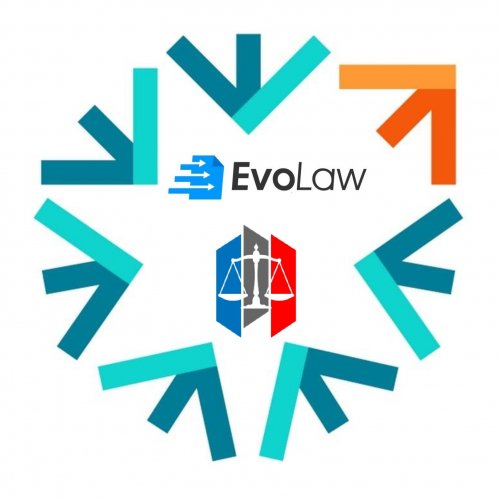Best Sexual Harassment Lawyers in San Salvador
Share your needs with us, get contacted by law firms.
Free. Takes 2 min.
List of the best lawyers in San Salvador, El Salvador
About Sexual Harassment Law in San Salvador, El Salvador
Sexual harassment refers to unwelcome sexual advances, requests for sexual favors, and other verbal or physical conduct of a sexual nature that creates a hostile or intimidating environment. In San Salvador, El Salvador, sexual harassment is a serious offense that is governed by laws to protect victims and ensure justice is served.
Why You May Need a Lawyer
A lawyer can provide valuable assistance if you are facing or have experienced sexual harassment. They can help you understand your rights, guide you through the legal process, and represent your interests. Here are some common situations where you may require legal help:
- You are being sexually harassed at your workplace and need assistance filing a complaint.
- You have been wrongfully accused of sexual harassment and need legal representation.
- You need guidance on how to gather evidence and build a strong case.
- You want to understand the potential legal remedies available to you as a victim of sexual harassment.
Local Laws Overview
In San Salvador, El Salvador, the laws relevant to sexual harassment include:
- The General Law on Equality, Equity, and the Elimination of Discrimination Against Women.
- The Labor Code, which outlines employer obligations and employee rights related to sexual harassment in the workplace.
- The Criminal Code, which criminalizes various forms of sexual harassment and stipulates penalties for offenders.
It is important to consult a lawyer who is well-versed in these laws to understand how they apply to your specific situation.
Frequently Asked Questions
1. What qualifies as sexual harassment in San Salvador, El Salvador?
Sexual harassment can manifest in various ways, including unwanted sexual advances, explicit comments, requests for sexual favors, or any other form of unwelcome sexual conduct that creates a hostile environment.
2. How can I prove that I have been sexually harassed?
Evidence of sexual harassment can include witnesses, documentation, emails or messages, photographs, or any other relevant material that supports your claim. A lawyer can guide you on how to gather and present this evidence effectively.
3. What legal actions can I take if I have been sexually harassed?
You can file a complaint with your employer, report the incident to the police, and seek legal remedies such as compensation for damages. Consulting a lawyer will help you understand the best course of action based on your specific circumstances.
4. Is there a time limit for filing a sexual harassment complaint?
Yes, there is a time limit called the statute of limitations. It is advisable to consult a lawyer promptly to ensure you file your complaint within the required timeframe.
5. How can a lawyer help me as a victim or accused of sexual harassment?
A lawyer can offer legal advice, represent you in negotiations or court proceedings, help you understand your rights, assist in gathering evidence, and guide you through the entire legal process.
Additional Resources
For further information and assistance related to sexual harassment, the following resources may be helpful:
- The Ministry of Labor and Social Welfare
- The National Institute for Women
- Local human rights organizations and NGOs
These resources can provide you with additional support, guidance, and information specific to your circumstances.
Next Steps
If you require legal assistance regarding sexual harassment in San Salvador, El Salvador, you should consider taking the following steps:
- Research and choose a reputable lawyer specializing in sexual harassment cases.
- Contact the lawyer to discuss your situation, rights, and available legal options.
- Provide the lawyer with all relevant information and evidence.
- Follow their guidance and instructions throughout the legal process.
- Attend any scheduled meetings, hearings, or court proceedings as required.
- Maintain open communication with your lawyer and seek clarification whenever necessary.
- Cooperate fully with your lawyer to increase the chances of a successful outcome.
Remember, seeking legal assistance is crucial to protect your rights and ensure justice is served.
Lawzana helps you find the best lawyers and law firms in San Salvador through a curated and pre-screened list of qualified legal professionals. Our platform offers rankings and detailed profiles of attorneys and law firms, allowing you to compare based on practice areas, including Sexual Harassment, experience, and client feedback.
Each profile includes a description of the firm's areas of practice, client reviews, team members and partners, year of establishment, spoken languages, office locations, contact information, social media presence, and any published articles or resources. Most firms on our platform speak English and are experienced in both local and international legal matters.
Get a quote from top-rated law firms in San Salvador, El Salvador — quickly, securely, and without unnecessary hassle.
Disclaimer:
The information provided on this page is for general informational purposes only and does not constitute legal advice. While we strive to ensure the accuracy and relevance of the content, legal information may change over time, and interpretations of the law can vary. You should always consult with a qualified legal professional for advice specific to your situation.
We disclaim all liability for actions taken or not taken based on the content of this page. If you believe any information is incorrect or outdated, please contact us, and we will review and update it where appropriate.








